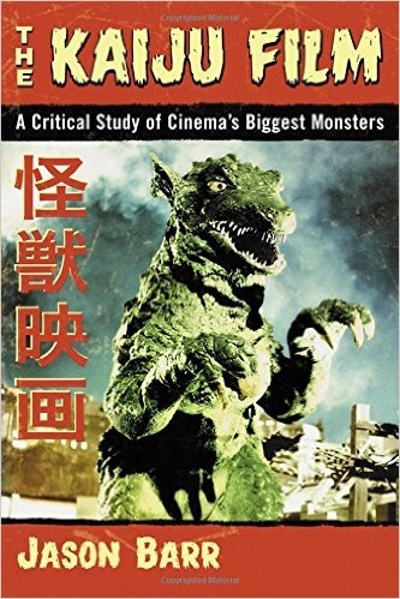- Home
- Features
- Movies/Media
- Collectibles
- Comics/Books
-
Databases
-
Figure Database
>
-
X-Plus Toho/Daiei/Other
>
- X-Plus 30 cm Godzilla/Toho Part One
- X-Plus 30 cm Godzilla/Toho Part Two
- X-Plus Large Monster Series Godzilla/Toho Part One
- X-Plus Large Monster Series Godzilla/Toho Part Two
- X-Plus Godzilla/Toho Pre-2007
- X-Plus Godzilla/Toho Gigantic Series
- X-Plus Daiei/Pacific Rim/Other
- X-Plus Daiei/Other Pre-2009
- X-Plus Toho/Daiei DefoReal/More Part One
- X-Plus Toho/Daiei DefoReal/More Part Two
- X-Plus Godzilla/Toho Other Figure Lines
- X-Plus Classic Creatures & More
- Star Ace/X-Plus Classic Creatures & More
-
X-Plus Ultraman
>
- X-Plus Ultraman Pre-2012 Part One
- X-Plus Ultraman Pre-2012 Part Two
- X-Plus Ultraman 2012 - 2013
- X-Plus Ultraman 2014 - 2015
- X-Plus Ultraman 2016 - 2017
- X-Plus Ultraman 2018 - 2019
- X-Plus Ultraman 2020 - 2021
- X-Plus Ultraman 2022 - 2023
- X-Plus Ultraman Gigantics/DefoReals
- X-Plus Ultraman RMC
- X-Plus Ultraman RMC Plus
- X-Plus Ultraman Other Figure Lines
- X-Plus Tokusatsu
- Bandai/Tamashii >
- Banpresto
- NECA >
- Medicom Toys >
- Kaiyodo/Revoltech
- Diamond Select Toys
- Funko/Jakks/Others
- Playmates Toys
- Art Spirits
- Mezco Toyz
-
X-Plus Toho/Daiei/Other
>
- Movie Database >
- Comic/Book Database >
-
Figure Database
>
- Marketplace
- Kaiju Addicts
 The Kaiju Film: A Critical Study of Cinema's Biggest Monsters The Kaiju (strange monster) film genre has a number of themes that go well beyond the "big monsters stomping on cities" motif. Since the seminal King Kong 1933) and the archetypal Godzilla (1954), kaiju has mined the subject matter of science run amok, militarism, capitalism, colonialism, consumerism and pollution. This critical examination of kaiju considers the entirety of the genre--the major franchises, along with less well known films like Kronos (1957), Monsters (2010) and Pacific Rim (2013). The author examines how kaiju has crossed cultures from its original folkloric inspirations in both the U.S. and Japan and how the genre continues to reflect national values to audiences. Format: 212 pgs., B&W, 6"x9", Trade Paperback Release date: Jan 2016 Publisher: Mcfarland & Co Inc Amazon Preview About the Author Jason Barr’s work has appeared in The Explicator, African American Review, and Stories of Complicated Grief: A Critical Anthology, among others. He lives in Harrisonburg, Virginia. ICv2 Review For those not familiar with the term, it loosely refers to movies about gigantic creatures, in a genre that can include King Kong, Godzilla and Pacific Rim. Unlike some scholars, he does not try to limit the term to Japanese films, viewing it as a genre rather than a subclass of one nation’s film industry. This is an excellent book marred by a few annoying flaws. One is the format. McFarland publishes books that are scholarly in tone, but in this case a few photos would have helped. A second is the price, which is painfully high for the size of the book. The third is the odd habit the author has of setting up straw men and then destroying them with blasts of radioactive flame. He repeatedly quotes Susan Sontag's very flawed definition of science fiction, and then points out how flawed it is. Well, yes, it is but readers of Barr's book will understand the first time he explains her errors. On the plus side, the writing is very readable, the footnotes are excellent, and Barr has some good points to make. For instance, you can tell how the military of a country was viewed at a point in time by how well they do against giant monsters in that nation's films. This actually works remarkably well for both U.S. and Japanese giant monster movies. The films present cultural snapshots in other ways that might not have been obvious, and Barr does a good job with this kind of information. His political interpretations of movies are more problematic, but still interesting. Serious fans of kaiju films will find much to discuss in this book. While aimed at adults, older teens may find it interesting as well. ICv2 Rating: 4 Stars out of 5 --Nick Smith: Library Technician, Community Services, for the Pasadena Public Library in California.
0 Comments
|
Archives
July 2024
Categories
All
|
|
© 2011-2024 Kaiju Battle. All Rights Reserved.
|
Visit Our Social Media Sites
|
Proudly powered by Weebly
|
- Home
- Features
- Movies/Media
- Collectibles
- Comics/Books
-
Databases
-
Figure Database
>
-
X-Plus Toho/Daiei/Other
>
- X-Plus 30 cm Godzilla/Toho Part One
- X-Plus 30 cm Godzilla/Toho Part Two
- X-Plus Large Monster Series Godzilla/Toho Part One
- X-Plus Large Monster Series Godzilla/Toho Part Two
- X-Plus Godzilla/Toho Pre-2007
- X-Plus Godzilla/Toho Gigantic Series
- X-Plus Daiei/Pacific Rim/Other
- X-Plus Daiei/Other Pre-2009
- X-Plus Toho/Daiei DefoReal/More Part One
- X-Plus Toho/Daiei DefoReal/More Part Two
- X-Plus Godzilla/Toho Other Figure Lines
- X-Plus Classic Creatures & More
- Star Ace/X-Plus Classic Creatures & More
-
X-Plus Ultraman
>
- X-Plus Ultraman Pre-2012 Part One
- X-Plus Ultraman Pre-2012 Part Two
- X-Plus Ultraman 2012 - 2013
- X-Plus Ultraman 2014 - 2015
- X-Plus Ultraman 2016 - 2017
- X-Plus Ultraman 2018 - 2019
- X-Plus Ultraman 2020 - 2021
- X-Plus Ultraman 2022 - 2023
- X-Plus Ultraman Gigantics/DefoReals
- X-Plus Ultraman RMC
- X-Plus Ultraman RMC Plus
- X-Plus Ultraman Other Figure Lines
- X-Plus Tokusatsu
- Bandai/Tamashii >
- Banpresto
- NECA >
- Medicom Toys >
- Kaiyodo/Revoltech
- Diamond Select Toys
- Funko/Jakks/Others
- Playmates Toys
- Art Spirits
- Mezco Toyz
-
X-Plus Toho/Daiei/Other
>
- Movie Database >
- Comic/Book Database >
-
Figure Database
>
- Marketplace
- Kaiju Addicts

 RSS Feed
RSS Feed